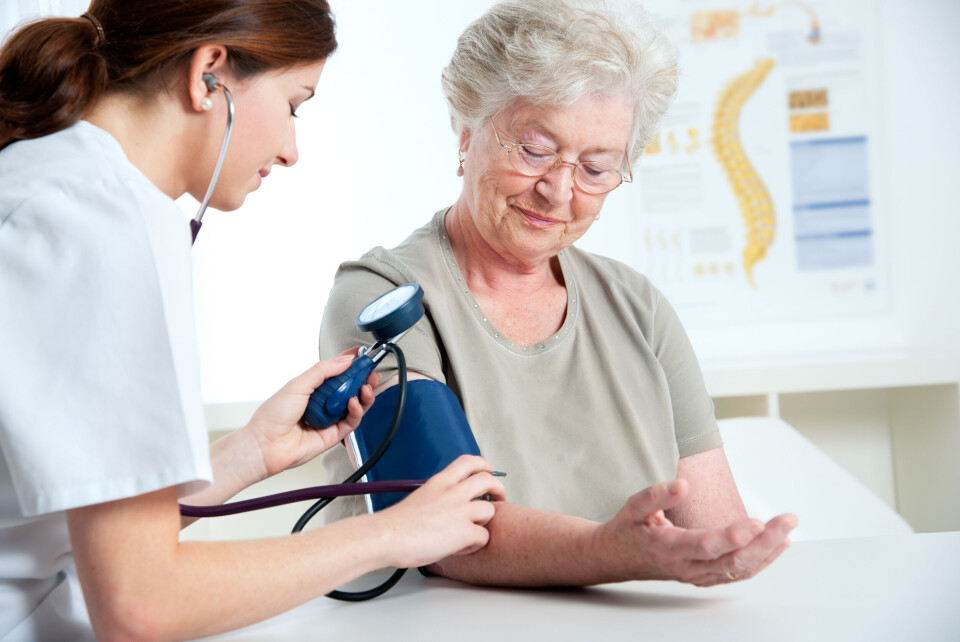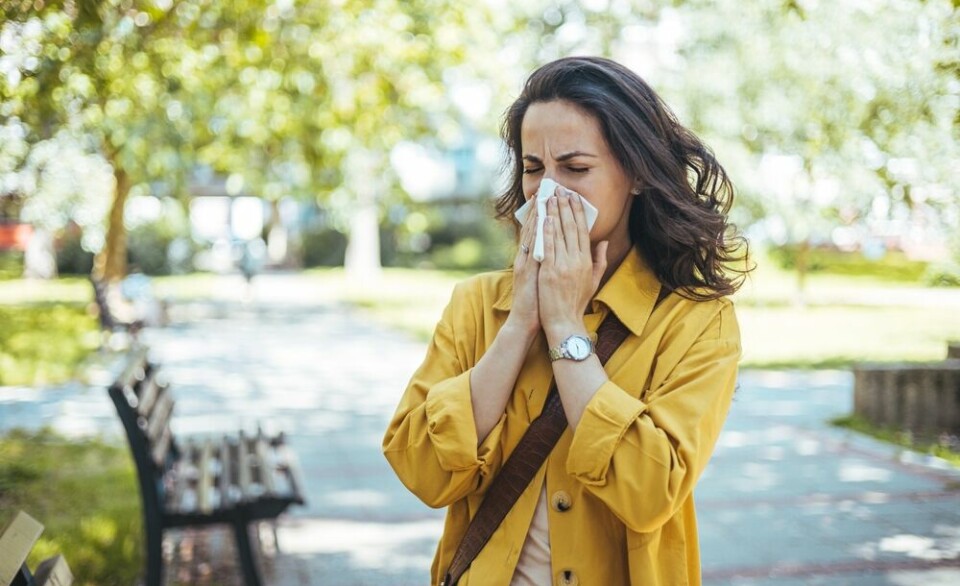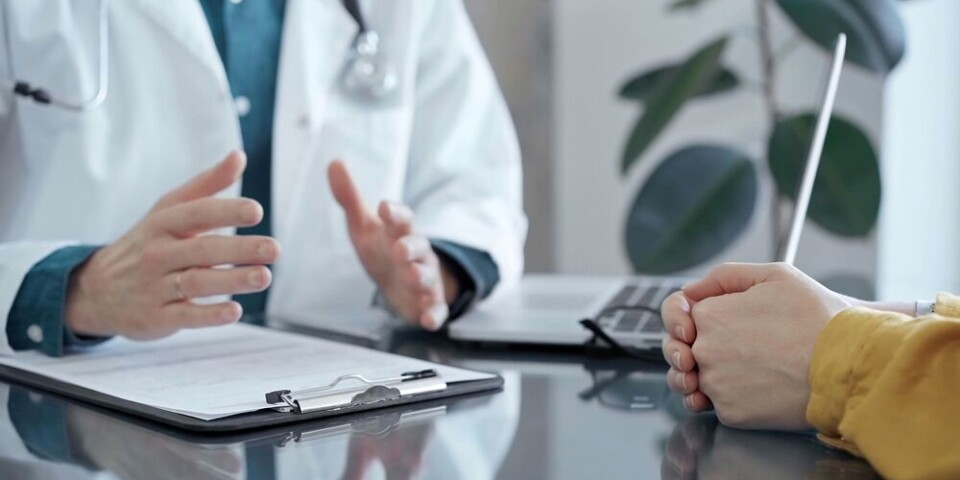-
Trump calls for Marine Le Pen to be freed (but she is not in prison)
US president said her embezzlement court case was a ‘witch hunt’
-
France’s €3 book delivery fee challenged in EU court by Amazon
Online retailer said measure is protectionist and ‘in breach of EU laws’
-
Allergies: How to know pollen levels in your commune of France
Interactive online maps can track and predict how pollen is changing in the air
‘Prevention will ease healthcare crisis in France’, says minister
Exercise, health check-ups and public-private cooperation will help France catch up with northern Europe on prevention

Staging the 2023 Rugby World Cup and 2024 Olympics will provide an “extraordinary springboard” for France to place prevention at the heart of its healthcare policy, the health minister has said.
Prevention not part of French culture
François Braun said France is “probably behind Anglo-Saxon countries when it comes to prevention, and certainly behind northern Europe”.
He told The Connexion and other media at the Anglo-American Press Association in Paris: “Prevention is not really part of the French culture.”
That will have to change if France is to adapt to the challenges of an ageing population with a greater number of chronic illnesses.
Read more: How do French healthcare costs change for long-term illnesses?
Blood pressure treatment costs €1billion per year
“Coming out of the Covid crisis, health systems across the world are struggling,” Mr Braun said.
The crisis has been particularly visible in France, where many areas are suffering from a shortage of doctors, while GPs have recently been on strike demanding an increase in consultation fees.
Prevention is seen as a way to reduce strain on the system, while also saving public money.
“Through physical activity, we can reduce the number of people who require treatment for high blood pressure, for example, by 70%.
“These treatments cost €1billion per year.”
More exercise in schools
Encouraging people to exercise, alongside other preventative measures, will be key to the free health check-ups France is set to introduce at ages 25, 45 and 65.
“[Prevention] is currently focused on people who are ill and are made to exercise to avoid relapse or complications. We need to shift towards primary prevention,” Mr Braun said.
The government has already introduced 30 minutes of daily sports for primary school children, and is set to implement an additional two hours of weekly physical activity in collège and lycée secondary school.
Read more: French schools: mandatory sport at primary and more maths until 18
The minister recently convened a group of specialists to discuss how France could improve its approach to sports-based healthcare.
“In our last meeting, they told me that, in France, when we believe maths levels are too poor compared to other countries, we add extra maths classes.
“In northern European countries, they add sports classes, and this improves levels in maths.”
Vaccines and condoms for young people
Exercise is not the only strategy behind the new focus on prevention.
While visiting students at a collège in Jarnac (Charente) recently, President Emmanuel Macron announced that, from autumn, pupils in the second year of collège will be able to receive the HPV vaccine for free.
The sexually transmitted virus causes 6,000 cases of cancer in France each year.
A vaccination campaign has accelerated in recent years to reach 46% of girls born in 2006 and, since 2021, boys have also been able to get the vaccine.
Other measures announced in recent months include free condoms from pharmacies for those under 26.
Cooperation not competition
France is also planning to transform the way healthcare is organised.
Systems built in the post-war period are no longer adapted to contemporary challenges, with supply failing to rise in line with demand, Mr Braun said.
“Competition no longer has its place, between clinics and hospitals, public and private.
“More cooperation is necessary.”
Mr Braun admitted that the numerus clausus – the strict limit on the number of medical students, abolished in 2021 – had been a “catastrophic” idea.
“The idea in the 1970s was that the fewer doctors there were, the fewer medical procedures there would be, allowing us to balance the books. Today, that idea seems totally absurd.”
The reforms will not have an immediate impact, however.
“It takes 10 years to train a doctor. While we wait to see the effects, the system will be on its knees if we do nothing.”
Read more: How does France’s doctor shortage compare to other countries?
State must take on responsibility
Mr Braun said “individualism” must be rooted out of the healthcare system, with doctors committing to contribute to global solutions in their local area.
“Generally speaking, the problems are the same everywhere, but the solutions are different.
“The solution to a ‘medical desert’ in Paris will not be the same as in [sparsely populated] Lozère.
“In the north of Marseille there was a shortage of GPs [who are usually self-employed] so the hospital created a medical centre and hired doctors. We need to give ourselves this flexibility.
“In areas where there are no private GPs, the state must take on this responsibility.”
GPs and other primary care providers will be encouraged to work in groups, with a more global view of patients’ needs and a greater focus on prevention.
Mr Braun also highlighted the need to reform the T2A funding model, which allocates money to hospitals based on productivity, and which doctors say, fails to account for chronic illnesses.
This is something President Macron already promised when addressing healthcare professionals at the beginning of the year.
Questions over nurses training
In terms of nursing, lack of personnel is also an issue.
“We are already training 30% more nurses. The main problem is 20% drop out during their studies or their first year on the job,” Mr Braun said.
He blames this on the financial pressures student nurses face, as well as their training, which is ill-adapted to the professional environment.
“We train professionals who are completely lost once they are in the field. We are working to totally revamp these three years of studies.”
Out-of-hours responsibilities causes doctors to leave
Mr Braun also defended Assurance Maladie’s proposal to raise consultation fees from €25 to €26.50, while GPs have been asking for €50.
“A €1.50 increase would mean an extra €7,000 on average per doctor per year.”
Authorities have offered to increase the fee to €30, but only for doctors who agree to take on extra responsibilities to combat so-called medical deserts, by taking on new patients or seeing patients outside normal working hours, for example.
“When I speak to former colleagues who left public hospitals to go private, most do not leave for financial reasons, but due to a particular problem: out-of-hours service,” Mr Braun said.
“The burden of working at night and on weekends falls almost exclusively on the public sector.
“It’s important that in a given area, everybody participates in overnight and weekend work.
“Our system is supported by two legs – one public and one private – and it is important that each leg is just as strong as the other.”
Related articles
Getting medicines delivered to your home in France becomes easier
How could ‘no-show’ fees for GP appointments work in France?
Explainer: French healthcare terms that are useful to know
























